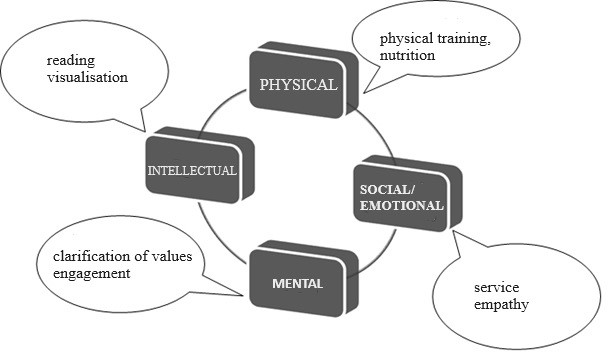Karrier- és Hallgatói Szolgáltatóközpont
Planning – with ourselves and our time
 As a university student you may have felt that 24 hours were not enough. Term papers, presentations, group tasks, tests and on top of everything else the exam period. Don’t be under any illusions, it won’t be easier later either. Likewise, when you get to work, you will be overwhelmed by deadlines, and a day will also consist of only 24 hours.
As a university student you may have felt that 24 hours were not enough. Term papers, presentations, group tasks, tests and on top of everything else the exam period. Don’t be under any illusions, it won’t be easier later either. Likewise, when you get to work, you will be overwhelmed by deadlines, and a day will also consist of only 24 hours.
The solution lies in increasing your personal efficiency, one of the tools of which is proper time management. Activities can be group according to urgency and importance, as shown in the time management matrix below.
|
Urgent |
Not urgent |
|
|
Important |
I. activity “Firefighting” Deadlines Critical situations Result:
|
II. activity “Sharpen the saw!” Prevention Looking for new opportunities Result:
|
|
Not important |
III. activity Interruptions Other people’s issues Calls Result:
|
IV. activity Routine tasks Pleasant activities Time wasters Result:
|
Source: Stephen R. Covey (2004): The 7 Habits of Highly Effective People
Urgent things are pressing on us, constantly floating in front of our eyes, in many cases they can be done easily and quickly, but sometimes they are not important. The important things are often tied to outcomes, goals, values, visions. Therefore, important but not urgent activities require more proactivity and initiative.
You can increase your personal effectiveness by staying away from the third and fourth quarter activities of your own time management matrix, and keeping the activities in the first quarter under control. You can achieve the latter by spending more time on the second quarter, so you sharpen the saw.
Stephen Covey in his book “The 7 habits of Highly Effective People” illustrates the importance of second quarter activities through the following dialogue.
- What are you doing?
- Are you blind? I’m cutting down this tree
- You look exhausted. How long have you been working?
- About five hours. Otherwise you are right. I’m deathly tired
- Take a break and sharpen your saw. If you sharpen the saw, you would cut down the tree much faster.
- I don’t have time to sharpen the saw. I’m very busy trying to cut trees.
The second quarter therefore covers activities related to renewal. Investing in yourself always pays off in both the short and long term. “Sharpening the saw” must be realized along the following four dimensions: physical (physical training, nutrition), intellectual (reading, visualisation), social/emotional (service, empathy), mental (clarification of values, engagement).

Physical dimension: Physical well-being includes eating healthily, exercising regularly and getting sufficient rest. When exercising, it is important to perform exercises that increase endurance, flexibility and strength. Instead of looking for excuses, we look for opportunities. After a while, you will find that regular exercise increases your proactivity.
Social/emotional dimension: This dimension is mostly developed and manifested in our relationships. Renewal does not require a special investment of time in this area, as it can best be developed through communication. Let’s accept the fact that we all perceive the world around us through different lenses. Balance is achieved and maintained when our life and actions are in harmony with right principles and guiding values deeply rooted in us. Inner security also comes from service, when you help another person.
Mental dimension: There is no recipe for renewing the mental dimension, everyone has a different way of achieving it. Some find mental renewal in religion, others in the study of literature, still others in meditation, and so on. Mental renewal takes time, but it is worth the effort, as it renews and refreshes us.
Intellectual dimension: After leaving school, many people no longer deal with intellectual renewal or self-improvement. They do not learn outside of their field, they stop reading books, they don’t exercise their analytical skills. These activities are often replaced by time-consuming fourth-quarter activities (e.g. watching TV series for hours, tik tok). We can maintain our intellectual dimension through continuous learning and this cannot only be achieved within the framework of trainings in school. A proactive person plans, looks for and finds new opportunities.,
It’s really worth the investment. As in so many things, it’s all about consistency and persistence. You don’t have to wait long for the results, you will see the qualitative change right away.
Take a mental step back from time to time, take stock of your actions and sharpen the saw.


